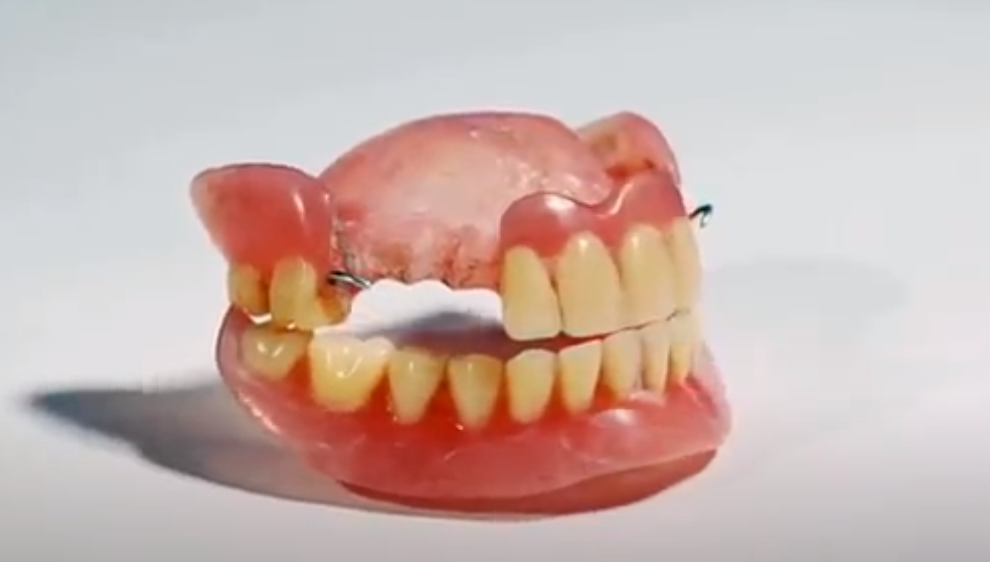What do you do when your dentures break? There are several reasons why you might need denture repair. Dentures are subject to wear and tear over time, and they may require adjustments or repairs to maintain their proper fit, function, and aesthetics. Here are some common reasons why dentures might need to be repaired:
- Fractures or Cracks: Dentures can become damaged due to accidents, dropping them, or biting on hard objects. Fractures or cracks in the denture material can lead to discomfort and may affect the denture’s function.
- Loose or Poor Fit: Over time, changes in the jawbone and gum tissues can cause dentures to become loose or ill-fitting. This can lead to sore spots, difficulty in eating and speaking, and discomfort. Repairs or adjustments may be necessary to improve the fit.
- Broken or Worn Denture Teeth: The artificial teeth on dentures can wear down or break, particularly if the dentures are old or not cared for properly. Replacing or repairing individual denture teeth can help restore the denture’s functionality.
- Damage to Denture Base: The acrylic or metal base of dentures can become damaged, leading to a compromised fit and potential irritation to the gums. Repairs may be needed to fix the base and restore the denture’s integrity.
- Improper Bite Alignment: Changes in the alignment of the denture or natural teeth can cause an improper bite, leading to discomfort and potential jaw issues. Adjustments can correct the bite alignment.
- Irritation or Sore Spots: Over time, dentures may cause irritation or sore spots on the gums due to changes in the mouth’s shape or an ill-fitting denture. Repairs or relining can address these issues.
- Stained or Discolored Denture: Dentures can become stained or discolored from regular use or exposure to certain foods and beverages. Professional cleaning or polishing can help improve the denture’s appearance.
- Worn-out Denture Base: Over time, the denture base material may wear down, affecting the overall fit and stability of the denture. Repairs or relining can restore the shape and function of the denture base.
If you don’t repair your dentures when necessary, several potential issues can arise, affecting both your oral health and overall well-being. Here are some of the consequences of neglecting denture repairs:
- Discomfort and Pain: Damaged or ill-fitting dentures can cause discomfort and pain, leading to sore spots, irritation of the gums, and difficulty wearing the dentures.
- Difficulty in Eating and Speaking: Cracked or broken dentures can make it challenging to chew food properly and may lead to difficulty in speaking clearly.
- Increased Wear and Tear: Ignoring small issues can lead to more extensive damage over time. For example, a small crack can worsen and compromise the structural integrity of the denture.
- Oral Sores and Infections: Ill-fitting or damaged dentures can cause friction and pressure on the gum tissues, leading to oral sores and an increased risk of infections.
- Changes in Facial Appearance: If dentures are not repaired promptly and their fit deteriorates, it can lead to changes in your facial appearance, such as sagging of the facial muscles and premature aging.
- Poor Nutrition: Difficulty eating with damaged dentures may result in avoiding certain foods, leading to an inadequate diet and nutritional deficiencies.
- Social and Psychological Impact: Ill-fitting or visibly damaged dentures can affect your self-confidence and may lead to social embarrassment or withdrawal from social situations.
- Jaw Misalignment: When dentures do not fit properly, it can affect your bite alignment, potentially causing jaw pain and temporomandibular joint (TMJ) issues.
- Increased Repair Costs: Ignoring minor issues can lead to more severe damage, which may require extensive repairs or even replacement of the dentures, resulting in higher costs.
To prevent these complications, it’s crucial to address any issues with your dentures promptly. If you notice discomfort, changes in fit, or visible damage to your dentures, contact your denturist for an evaluation. Woodside Denture Centre can often address minor problems before they escalate, ensuring that your dentures remain functional, comfortable, and safe to wear. Regular check-ups with your denturist can also help identify and address any potential issues with your dentures before they become major problems.
If you notice any issues with your dentures, such as discomfort, a poor fit, or damage, it’s essential to visit your denturist for evaluation and necessary repairs. Attempting to repair dentures at home or using over-the-counter adhesives may further damage the dentures and compromise their function. Woodside Denture Centre’s in-house lab ensures that your dentures are restored to their optimal condition, providing comfort and functionality for daily use. The best part is we do not have to send them away and most times can repair them on the same day, not leaving you without your dentures for more than a few hours.
Contact us if you are in need of a denture repair, our in-house lab will be happy to assist you, whether you receive your dentures from us or not, we are here to help you!

